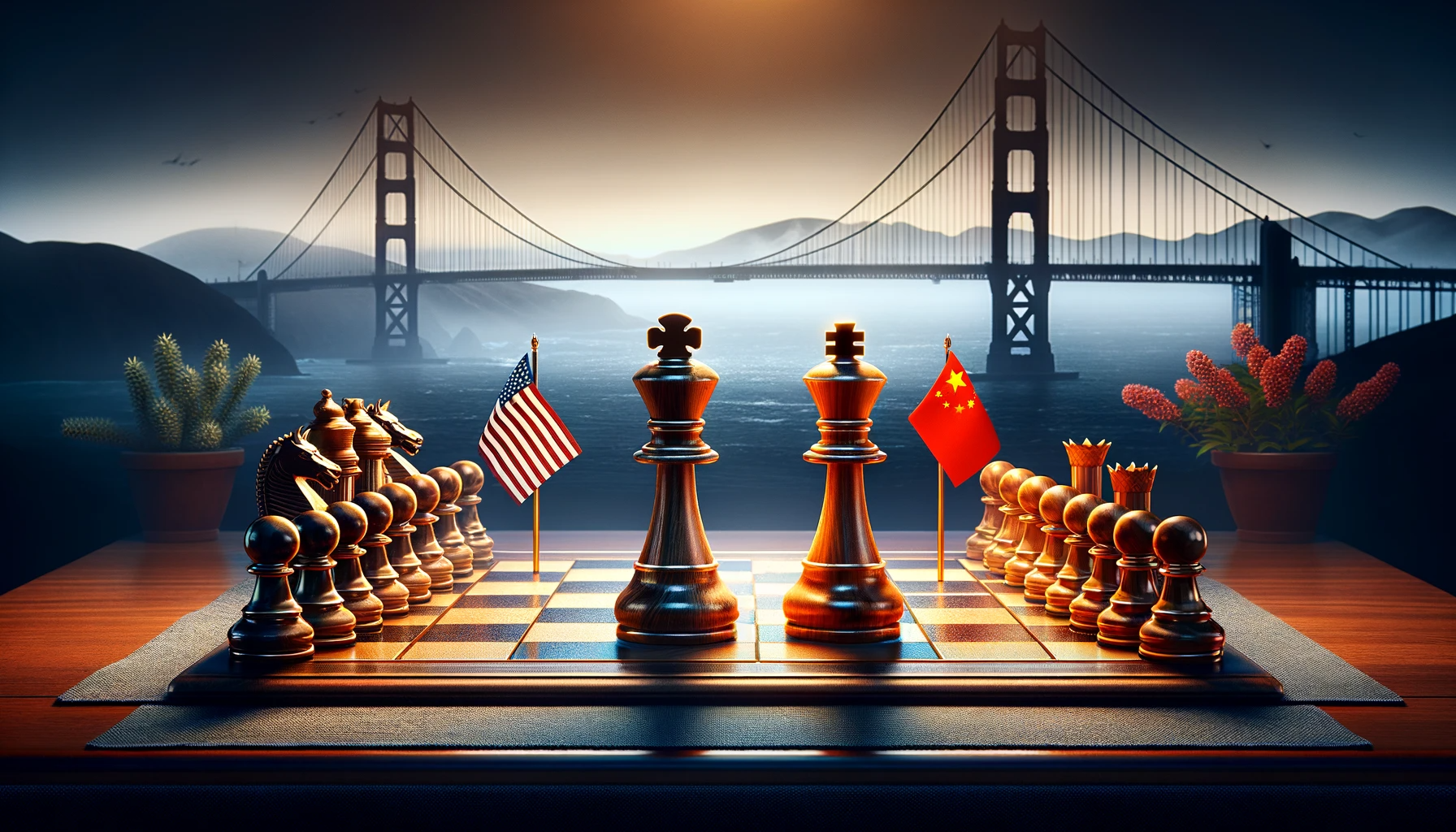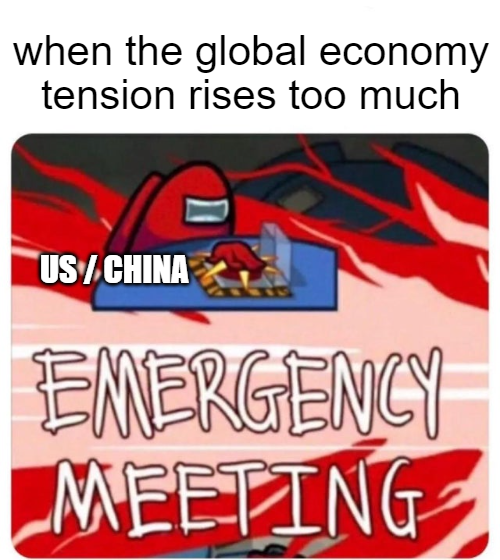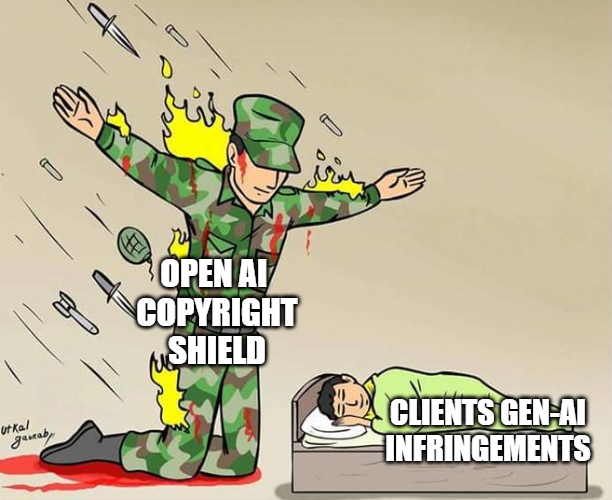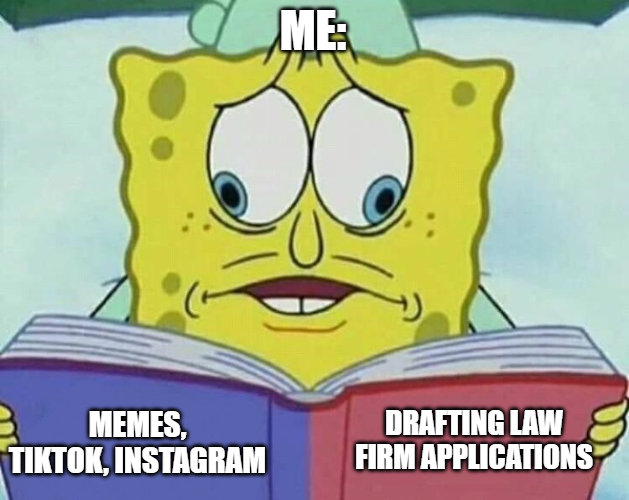The Big Meet-Up

Hi this is ZipLaw! We explain how news stories impact law firms so you can stand out in your applications.
Are you new here? Get free emails to your inbox.
Here’s what we’re serving today:
- Biden-Xi meet-up: All you need to know
- OpenAI's copyright shield explained
- Cyberattack blocks Australian port
The Big Meet-Up
In Short: In a high-stakes meeting on Wednesday in San Francisco, Joe Biden and Xi Jinping, leaders of the world’s two largest economies, grapple with their contrasting backgrounds and ideologies to address pressing global issues and interdependent economic ties.

Here's what to look out for:
- Taiwan and Regional Security:
- Context: Taiwan is a significant point of contention between the US and China. The US supports Taiwan's democratic government, while China views Taiwan as a breakaway province that must be reunited with the mainland.
- What to Watch: Any change in rhetoric or policy from either side regarding Taiwan could have profound implications for regional stability in the Asia-Pacific. It's important to observe whether Biden and Xi can reach a consensus on maintaining the status quo or if tensions escalate.
- Trade and Economic Relations:
- Context: The US and China have been involved in a trade war, with both countries imposing tariffs on each other's goods. This has global economic implications, affecting supply chains and international markets.
- What to Watch: Discussions may focus on reducing tariffs, addressing trade imbalances, and establishing fairer trade practices. Any agreements or even small steps towards easing trade tensions would have a significant impact on global markets.
- Technology and Cybersecurity:
- Context: The US and China are competing in technological advancements, particularly in areas like 5G, AI, and cybersecurity. This competition raises concerns about intellectual property rights, data privacy, and national security.
- What to Watch: The summit may touch on rules and norms governing technology transfer, protecting intellectual property, and ensuring cybersecurity. Collaboration or conflict in these areas could set the tone for global tech development and cyber relations.
- Global Challenges - Climate Change and Health:
- Context: Both countries are crucial players in global efforts to combat climate change and public health crises. Their cooperation or lack thereof can significantly influence global initiatives in these areas.
- What to Watch: Joint commitments or collaborative projects in areas like renewable energy, or emissions reduction could emerge from the summit. These agreements would signal a readiness to work together on pressing global issues.
Why Does It Matter?
This isn't just about two leaders sitting down for a chat. It's about the complex dance of diplomacy where every step counts. For Biden, it's a chance to showcase strength and diplomatic savvy ahead of looming elections. For Xi, it’s an opportunity to stabilize China's wavering global image and address domestic economic challenges.
The US-China relationship is a crucial economic partnership. In 2022, their trade hit a whopping $760 billion, with investments in physical and financial assets reaching $1.8 trillion.

Tensions, however, run deep. The US is wary of China's growing influence and assertive policies, while China views US actions as containment attempts. This diplomatic dance is further complicated by internal pressures each leader faces: Biden's fight against inflation and economic uncertainty, and Xi's need to revive a slowing economy and reassure nervous investors.
- So, What’s Next? Expectations for the summit are cautiously optimistic. There might not be ground-breaking agreements, but even small steps towards re-engagement and communication are significant. This meeting is less about immediate solutions and more about managing a complex, often contentious relationship. It's a moment for these leaders to acknowledge their mutual dependencies and perhaps, lay the groundwork for a less turbulent future.
⚖️ How does this impact Law Firms?
International Trade and Diplomacy Law:
- Negotiation and Drafting of Trade Agreements: Lawyers will play a crucial role in negotiating and drafting new trade agreements or amending existing ones between the UK, US, and China. These agreements may involve complex issues like tariffs, intellectual property rights, and technology transfer. Legal experts will ensure that these agreements comply with international trade laws and serve the best interests of their clients.
- Advisory on Sanctions and Export Controls: With the dynamic geopolitical landscape, lawyers will provide advisory services on compliance with sanctions and export control laws. They will guide companies in navigating the complexities of these regulations, especially in sectors like technology and defence, where US-China tensions might lead to new restrictions.
Corporate and M&A Law:
- Due Diligence for Cross-Border Investments: In light of renewed US-China interactions, there will be an uptick in cross-border investments and joint ventures. For example, lawyers may conduct due diligence for British firms looking to invest in China or the US, or vice versa, evaluating risks related to political climate, regulatory changes, and intellectual property rights.
- Structuring and Negotiation of Joint Ventures: Lawyers will assist in structuring joint ventures and strategic alliances, particularly in sectors like technology and manufacturing, which are sensitive to US-China relations. This includes drafting agreements, negotiating terms, and advising on compliance with both local and international laws.
Employment Law:
- Advisory on International Employment Regulations: Lawyers will provide guidance to multinational corporations on employment regulations, especially those with operations in both the US and China. This includes advice on labour laws, employee rights, and immigration issues, ensuring compliance across different jurisdictions.
- Handling of Disputes and Litigations: As economic and political dynamics shift, employment disputes and litigations may arise, particularly in areas like wrongful termination or discrimination in a multinational environment. Lawyers will represent clients in these cases, providing strategic advice and litigation support in cross-border employment issues.
OpenAI's copyright shield
In Short: OpenAI introduces "Copyright Shield", a policy promising to defend and cover costs for customers facing copyright infringement claims, amidst a wave of legal concerns in the AI industry.
What’s Going On?
OpenAI announced a Copyright Shield offering legal protection to its users, specifically those using its premium, commercial services. Essentially, if a user faces a copyright infringement lawsuit due to content created using OpenAI's tools like ChatGPT Enterprise, the company steps in to defend the user and cover the associated legal costs

Why Does It Matter?
In a landscape where tech giants are constantly pelted with lawsuits over copyright infringement, OpenAI's move is a game changer. This policy is not just about offering a legal cushion; it's about instilling confidence in the use of generative AI.
But Wait, There's More…
However, there's a catch. These protections are not a blanket shield. They apply mainly to commercial customers using premium services. So, if you're using a free service like Dall-E and take artwork that includes images of a Mickey Mouse lookalike, slap it on a billboard and get sued by Disney, the protections don’t apply.
The indemnities are tailored for specific enterprise models, with built-in controls to prevent misuse of protected content.
What are other companies doing?
This isn't just about avoiding lawsuits; it's about fostering a safer environment for AI innovation. Much like how protections in the early days of open-source movement paved the way for its widespread adoption, these AI indemnifications could be the catalyst for more companies to embrace these advanced tools without the fear of legal repercussions.

Adobe, Microsoft, and Google have taken steps similar to OpenAI's Copyright Shield, each introducing their own measures to address legal anxieties around AI usage:
- Adobe: In June, Adobe announced protections for users of its AI image generator, Firefly. This policy is designed to shield customers from intellectual property lawsuits that may arise from using Firefly.
- Microsoft: Microsoft introduced the Copilot Copyright Commitment in September. This policy is specifically geared towards users of its AI-based software like GitHub Copilot, a tool that assists in coding by suggesting lines of code or entire functions.
- Google: Google joined the fray with a policy of its own, offering legal protections for users of its AI services. Announced through a blog post, Google stated that it would assume responsibility for potential legal risks related to copyright challenges faced by its customers.
⚖️ How does this impact Law Firms?
Intellectual Property (IP) Law:
- Copyright Infringement Defence: Lawyers in this field will be in high demand to defend clients who face lawsuits for allegedly infringing copyrights with AI-generated content. They will analyse the specific uses of AI in creating content, determine the extent of originality and creativity involved, and mount a defence based on these factors.
- IP Strategy and Compliance Advisory: IP lawyers will also advise companies on developing robust IP strategies that align with the use of AI technologies. This includes ensuring compliance with copyright laws when using AI to generate content, and advising on the risks and benefits of relying on AI for creative processes.
Technology and Data Law:
- Contract Drafting and Negotiation: Lawyers specialising in technology and data law will be tasked with drafting and negotiating contracts for AI services. This includes agreements for the use of AI tools, ensuring clauses are in place to address liability and indemnification issues like those presented by OpenAI's Copyright Shield.
- Data Privacy and Protection Advisory: These lawyers will advise clients on the implications of using AI in relation to data privacy laws. They will need to ensure that companies’ use of AI for data processing complies with laws such as GDPR, and advise on the management of data collected through AI systems, particularly concerning user consent and data rights.
Commercial Litigation:
- AI-Related Dispute Resolution: Commercial litigation lawyers will see an increase in disputes involving AI technology. They will represent clients in court or arbitration proceedings, addressing issues like AI’s role in potential copyright infringements and other contractual disputes stemming from AI services.
- Risk Management and Legal Consulting: These lawyers will provide consulting services to companies on managing the risks associated with deploying AI technologies. This includes advising on potential litigation risks and developing strategies to mitigate these risks, particularly in areas where AI intersects with copyright and other intellectual property laws.
Cyberattack blocks Australian port
In Short: DP World, a key player in Australia's maritime trade, grapples with a massive backlog of 30,000 containers following a cyberattack.

What’s Going On?
Picture this: a giant digital padlock snaps shut on a key player in global shipping. That's what happened to DP World, one of the world's largest port operators, when hackers launched a cyberattack, causing chaos at several Australian ports.
Operations in Melbourne, Sydney, Brisbane, and Fremantle came to a screeching halt. Although there's been some movement since Monday, the pace is slower than a snail on a leisurely stroll - only 5,000 of the 30,000 containers are moving.
Why Does It Matter?
DP World handles almost 40% of Australia’s import-export business. This isn't just a small hiccup. A single cyberattack and bam - the ripple effect can hit everything from your morning coffee to the energy sector.
As ports ditch paper for pixels, they're also opening doors to cyber threats. Ransomware is like the modern-day pirate, holding data hostage for treasure. And with attacks becoming increasingly common, the Australian government is stepping up, proposing new measures for businesses to tackle these digital threats head-on.
DP World is currently playing detective, trying to untangle this digital knot. Were they quick enough to prevent data theft? That’s the million-dollar question. Meanwhile, international hacker groups are eyeing these ports like sharks around a sinking ship.
👀 ZIPMEMES

Don't forget...
🙏 Our work is reader-supported. You can get a membership for cheap!
🎥 Follow us on Instagram here or TikTok here.
📫 Forward this to a friend and tell them to subscribe (hint: it's here).
